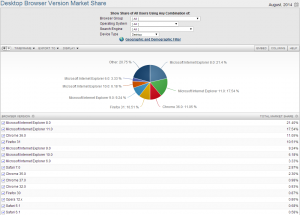“‘Who controls the past’, ran the Party slogan, ‘controls the future: who controls the present controls the past.'” Part 1, Chapter 3, pg. 37
The above is all inspired by someone the other day putting up a quote about the fact they had read 1984 and couldn’t believe how bad things were back then. Which made me laugh.
George Orwell’s 1984 was a book I read at high school for my higher in English prep. I was into science fiction and that genre and this sort off ticked some of those boxes. Obviously, it was about the state watching everything that the populate did and the perceived freedom people had was really not freedom at all. Orwell based it on the communist state in 1948 and his publisher’s enforced that he change the title to 1984 to make it more sellable and not offend the communist state of Russia.
History lesson over now, I came across a comic photo of Cortana, Microsoft’s office help in Windows 10, based on their game character from their Halo franchise. She will listen to you and answer questions to help. Similar to the OK Google in Android Google NOW.
But what are these helps really doing?
In the comic photo I saw that someone was happy that Cortana was there and they could chat, until eventually they had to switch Cortana off as she was so intrusive the person’s privacy ceased to exist.
My title is that Big Brother, the state in Orwell’s book that spied on everyone, has been watching us for a long time is in fact very true. Since the Internet has been around we have been spied on and catalogued in our preferences and histories and then email allowed us to be spied on. Particularly when it went online and became web based. Our shopping habits are spied on by supermarkets and stores, again with loyalty cards, as we scan, they record. We get vouchers emailed and sent through the post that give us money of the things we buy each week and use. Isn’t it amazing how do they know?
Should we be worried and concerned?
I meet a lot of different people in my IT travels from training to techie talks with geeks like myself. They range from the extremists who are so paranoid that they don’t use a lot of the available tech and systems that are around just now, to the laid back who use everything and deal with the aftermath.
I must admit to being nearer the second type of person with some criteria on what I would and would not do. I do love the latest tech and am slightly addicted to where it is taking us.
I would suggest to you that you are kept on record on the World Wide Web at a host of locations from government bodies who use your ID and unique NI number to shops and web page stored info. (Cookies and their friends). So worrying would be a fruitless activity and probably not get you any real benefit. Paranoia is the other extreme I find and people go to amazing lengths to avoid their real data and identity getting out there. It will get out there and to be honest it already is out there, is the amazing and correct answer to that.
Precautions
Of course I am not saying forget everything and lay abandon to any security and common sense, now that would be absurd, and I do meet that category of person as well.
We really need to use the latter, common sense and be aware of what we are doing.
- Not clicking on everything that pops up.
- Not filling in every form of filed that is asked of us by companies.
- Unticking boxes that want to store our info and sent us data all the time.
- Have all updates on and installed.
- Make sure we have the latest and up to date Anti-Virus and spyware/Malware kit on our machines.
- AND above all use common sense.
What are your thoughts on this and what do you do? Are you paranoid or very open?
Great to hear your comments.



